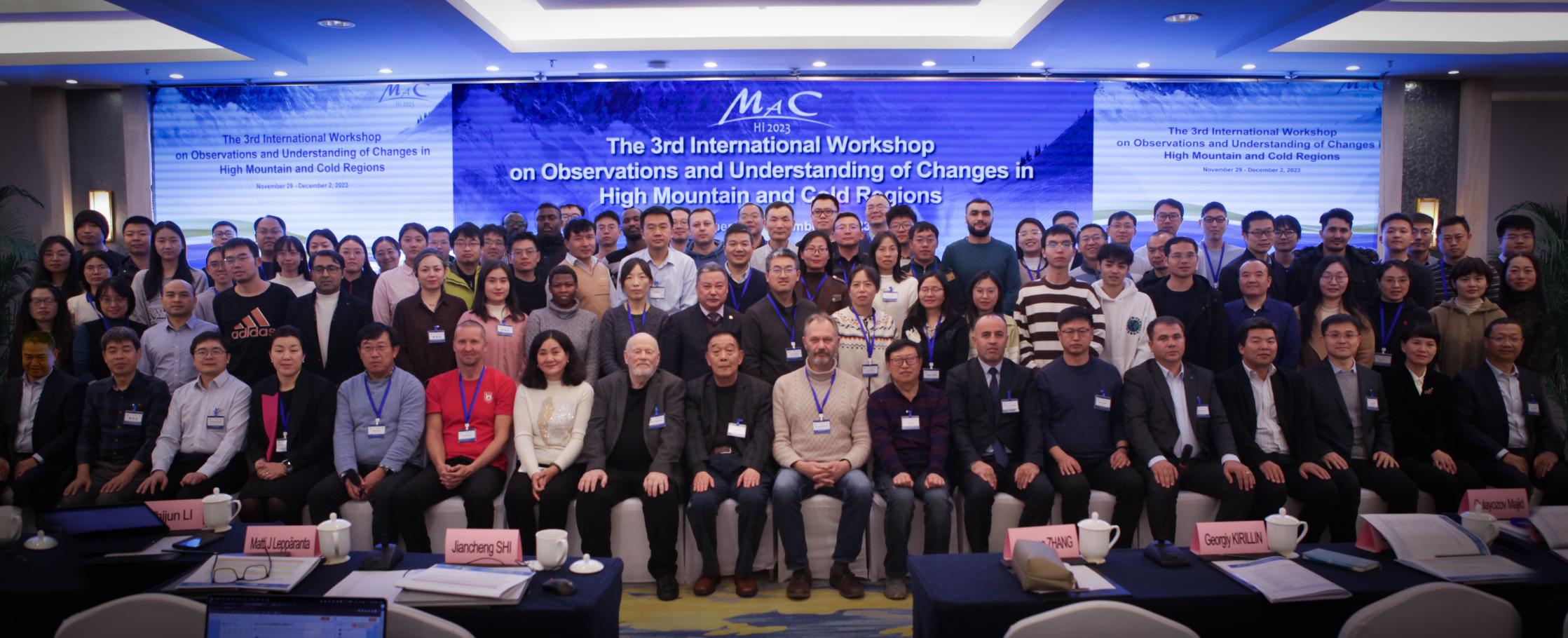From November 29 to December 1, the third International Workshop on Observation and Understanding of Changes in High Mountain and Cold Regions (HiMAC2023) took place in Urumqi, Xinjiang, a vast region characterized by abundant ice and snow and serving as the transitional land zone connecting the Arctic region and the high mountains of Asia.
Over 150 experts and scholars from countries including Belgium, Canada, Finland, Germany, Japan, Mongolia, Norway, Switzerland, Tajikistan, Uzbekistan, and China participated in the workshop, both online and offline.
The workshop is an event in the framework of the international programs - “High Mountain and Cold Regions Working Group (HiMAC) of Digital Belt and Road Program (DBAR)" and “Group on Earth Observations Cold Regions Initiative (GEOCRI)”.
The aim of the workshop was to enhance monitoring and scientific understanding of environmental changes in high mountains and polar regions, addressing scientific questions about the interconnection of changes in the Arctic land, ocean areas with the high mountain Asia (HMA), the high-elevation geographic region in central-south Asia.
The discussions also delved into the use of big Earth data to discover scientific correlations in environmental changes and to promote science and evidence-based services in social benefits and sustainable development.
Prof. Guo Huadong from the Aerospace Information Research Institute (AIR) under the Chinese Academy of Sciences (CAS) emphasized in his address that, with the global climate warming which intensifies in the Arctic and other regions, the challenge for scientists lies in understanding the interconnected changes between the Arctic land, ocean areas, and high-latitude regions such as the Qinghai-Tibet Plateau and Antarctica.
Prof. Shi Jiancheng from the National Space Science Center of CAS mentioned that abundant Earth observation data have been obtained to provide data support for scientific understanding and decision-making in the polar and high-mountain cold regions.
He added that comprehensive observation of environmental changes in the Arctic and HMA is key to understanding regional and global change processes.
In his online address, Philippe De Maeyer, a Full Member of the Royal Academy for Overseas Sciences in Belgium emphasized the importance of establishing a dense and reliable observation network to measure and understand spatial and temporal changes in global climate, particularly in sensitive regions along the "Belt and Road" where climate change has significant impacts on the local environment and global socio-economic conditions.
DBAR was launched in 2016 to utilize Big Earth Data to achieve sustainable development goals, and GEOCRI was initiated also in 2016 to coordinate global joint efforts for Earth observations and information services to provide societal benefits over the world's Cold Regions area including the North Pole, South Pole, Himalaya-Third Pole and Mountain areas. As a result of joint endeavor, this workshop serves as a platform for international collaboration and scientific exchange to address pressing issues related to environmental changes in high mountains and polar regions.

A group photo of HiMAC2023.